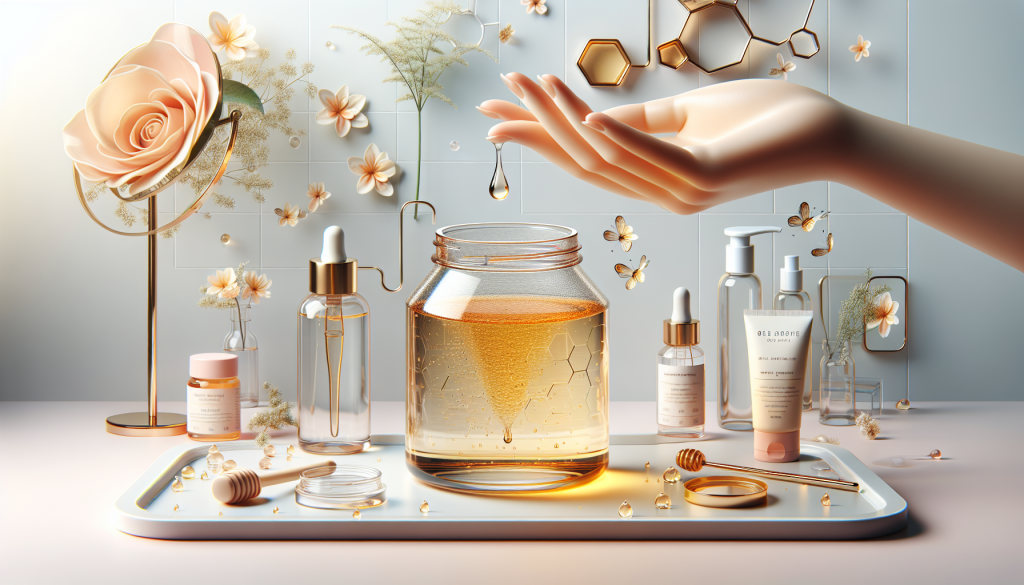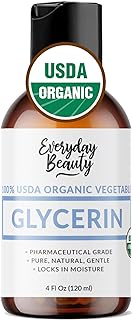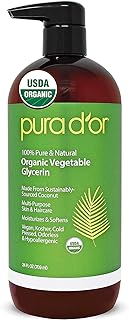Key Takeaways
| Topic | Summary |
|---|---|
| Science of Glycerin | Glycerin attracts moisture to the skin, making it ideal for dry and dehydrated skin types. |
| Sensitive Skin | Its gentle nature makes glycerin suitable for sensitive skin, helping to maintain moisture without causing irritation. |
| Benefits | From hydration to protecting the skin barrier, glycerin offers numerous benefits for maintaining healthy skin. |
| Daily Skincare Routine | Incorporating glycerin into your skincare routine can enhance skin hydration and overall health. |
| Glycerin vs. Other Moisturizers | Understanding the unique properties of glycerin compared to other moisturizers can help tailor skincare routines for better results. |
| Protecting the Skin Barrier | Glycerin plays a vital role in protecting and repairing the skin barrier, particularly in conditions like atopic dermatitis. |
| Skincare Product Reviews | Reviews of glycerin-based skincare products provide insights into effectiveness and suitability for different skin types. |
Ever wonder why some skincare products leave your skin feeling hydrated for hours on end, while others seem to vanish without a trace? Behind this magic is often a humble, yet powerhouse ingredient: glycerin.
The Science Behind Glycerin for Dry and Dehydrated Skin
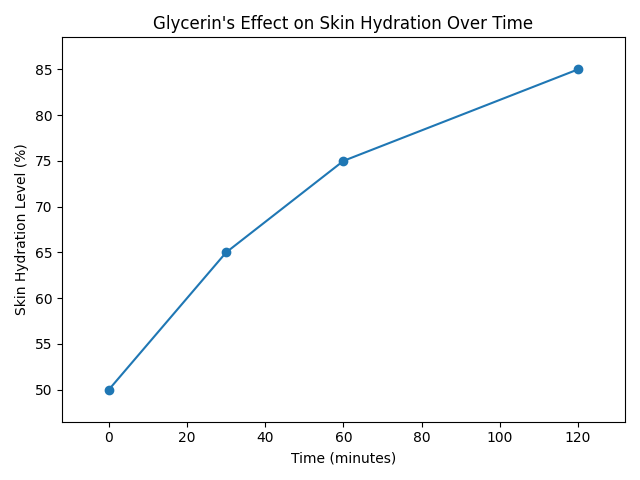
Glycerin, a clear, odorless liquid, primarily sourced from vegetable oils, is the skincare industry’s not-so-secret weapon for combating dryness. But how does it work? Imagine glycerin as a magnet for moisture, drawing water from the air into the skin’s outer layer. This not only provides an immediate plumping effect but also creates a moisture reservoir that keeps the skin hydrated over time. The chart above beautifully illustrates this process, showing how skin hydration levels increase steadily with regular glycerin use.
Glycerin for Sensitive Skin: A Gentle Moisturizer
Sensitive skin types, rejoice! Glycerin’s gentle nature means it hydrates without causing irritation, making it a go-to moisturizer for those with reactive skin. Its ability to enhance the skin’s natural barrier function further ensures that sensitive skin is protected from environmental aggressors, which can lead to irritation and discomfort.
The Top Benefits of Glycerin for Skin Health
Glycerin’s benefits extend far beyond simple hydration. It has been shown to promote skin cell maturation, protect against irritants, and even aid in wound healing. Plus, its compatibility with other skincare ingredients enables it to be a versatile addition to any skincare regimen, enhancing the efficacy of other products.
How to Use Glycerin in Your Daily Skin Care Routine
Incorporating glycerin into your skincare routine is easier than you might think. From cleansers and toners to serums and moisturizers, glycerin can be found in a wide range of products. For those with dry skin, choosing a facial cleanser that doesn’t strip away natural oils but instead adds moisture back into the skin is vital. The linked article explores top facial cleansers that harness the power of glycerin to keep dry skin at bay.
Choosing the Right Glycerin Product for Your Skin Type
The key to maximizing the benefits of glycerin is selecting products formulated for your specific skin type. For instance, individuals with oily skin should look for lightweight, non-comedogenic glycerin products that hydrate without clogging pores.
Glycerin vs. Other Moisturizers: What’s the Difference?
Unlike heavier oils or creams that can leave the skin feeling greasy, glycerin provides hydration without a heavy residue. Its small molecular size allows it to penetrate deep into the skin, offering more than just surface-level hydration. This makes it an excellent option for all skin types, particularly those seeking moisture without the shine.
The Role of Glycerin in Protecting the Skin Barrier
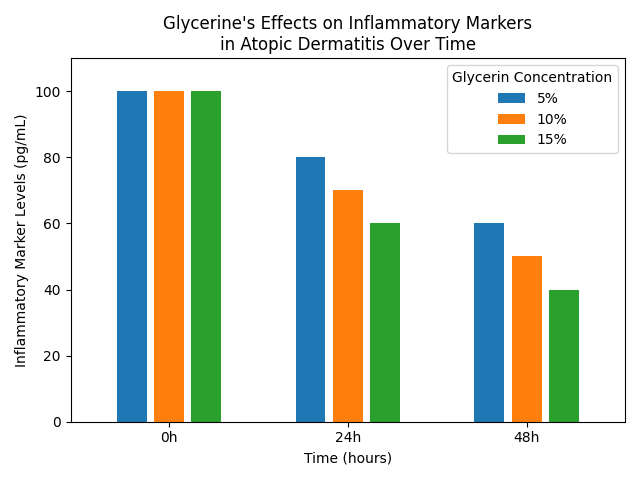
The integrity of the skin barrier is crucial for healthy skin, serving as the first line of defense against pathogens, irritants, and environmental damage. Glycerin, by hydrating the skin and promoting barrier repair, plays a vital role in maintaining this defense mechanism. The chart above highlights research on how glycerin reduces inflammatory markers in conditions like atopic dermatitis, showcasing its protective benefits.
Skincare Products That Contain Glycerin: Reviews
NOW Solutions, Vegetable Glycerin, 100% Pure, Softening and Moisturizing
100% Organic Glycerin – For Skin & Hair
PURA D’OR Organic Vegetable Glycerin
Reviewing glycerin-based products is essential for understanding how different formulations can benefit various skin types. The products listed above are examples of pure and organic glycerin solutions that have received positive feedback for their hydrating and skin-softening properties.
How Glycerin Can Improve Common Skin Conditions
Glycerin’s ability to attract and retain moisture makes it an effective ingredient for treating common skin conditions like eczema, psoriasis, and acne. By providing hydration and supporting the skin barrier, glycerin helps to alleviate symptoms associated with these conditions, such as dryness, flaking, and inflammation.
Incorporating Glycerin into Your Skincare Routine for Oily Skin
Even those with oily skin can benefit from the hydrating effects of glycerin without exacerbating their skin condition. The key is to choose products tailored to oily skin, ensuring they provide the necessary moisture without contributing to excess oil production. The linked article provides an in-depth review of a glycerin-containing facial cleanser designed for oily skin, offering insights into its effectiveness.
Related Articles
- The Ultimate Guide to the Best Cleanser for Combination Skin in 2024
- Benefits of glycerin for your skin, according to dermatologists
- What Does Glycerin Do for Your Skin – Glycerin Benefits
- Best Facial Cleanser for Dry Skin: A Deep Dive into Hydrating Solutions
- EltaMD Foaming Facial Cleanser 2024 Review: Best Choice for Oily Skin?
In conclusion, glycerin is a versatile and beneficial ingredient in skincare, ideal for a wide range of skin types and conditions. Whether you’re looking to combat dryness, sensitive skin, or protect your skin’s barrier, incorporating glycerin into your routine can offer significant benefits. So, why not give your skin the hydration boost it deserves?
Frequently Asked Questions
Q: What is glycerine and how does it benefit the skin?
A: Glycerine is a transparent, odorless liquid that is known for its hydrating properties. It attracts moisture to the skin, helping to keep it hydrated and healthy.
Q: Is glycerine suitable for all skin types?
A: Yes, glycerine is suitable for all skin types. It is gentle and non-irritating, making it an ideal ingredient in skin care products for a wide range of skin concerns.
Q: How does glycerine help with dry or dehydrated skin?
A: Glycerine helps to nourish the skin and retain moisture, making it effective in combating dry or dehydrated skin. It helps to keep the skin feeling soft and hydrated.
Q: Can glycerine help with cracked skin?
A: Yes, glycerine can help with cracked skin by providing intense hydration and promoting the healing of the skin barrier function. It helps to repair and soothe dry, cracked skin.
Q: Are there any risks of using glycerine on the skin?
A: Glycerine is generally considered safe for use on the skin, but in some cases, it may cause skin irritation for individuals with sensitive skin. It is always recommended to do a patch test before using new products containing glycerine.
Q: How does glycerine impact the texture of the skin?
A: Glycerine can help improve the skin texture by hydrating and nourishing the skin. It smooths and softens the skin, giving it a more supple and healthy appearance.
Q: Can glycerine be used on acne-prone skin?
A: Glycerine is non-comedogenic, meaning it does not clog pores, making it safe to use on acne-prone skin. It helps to hydrate the skin without causing breakouts.
